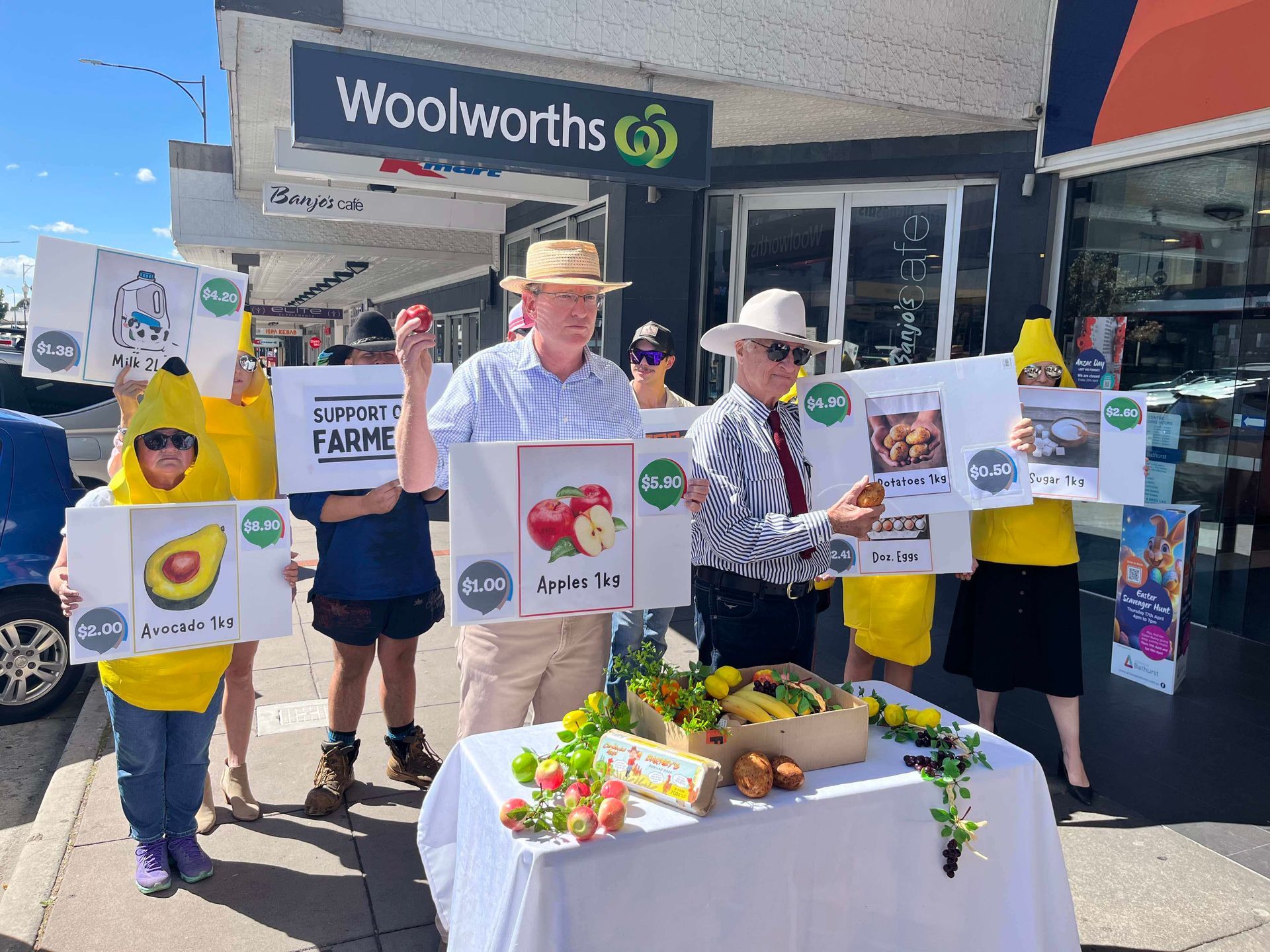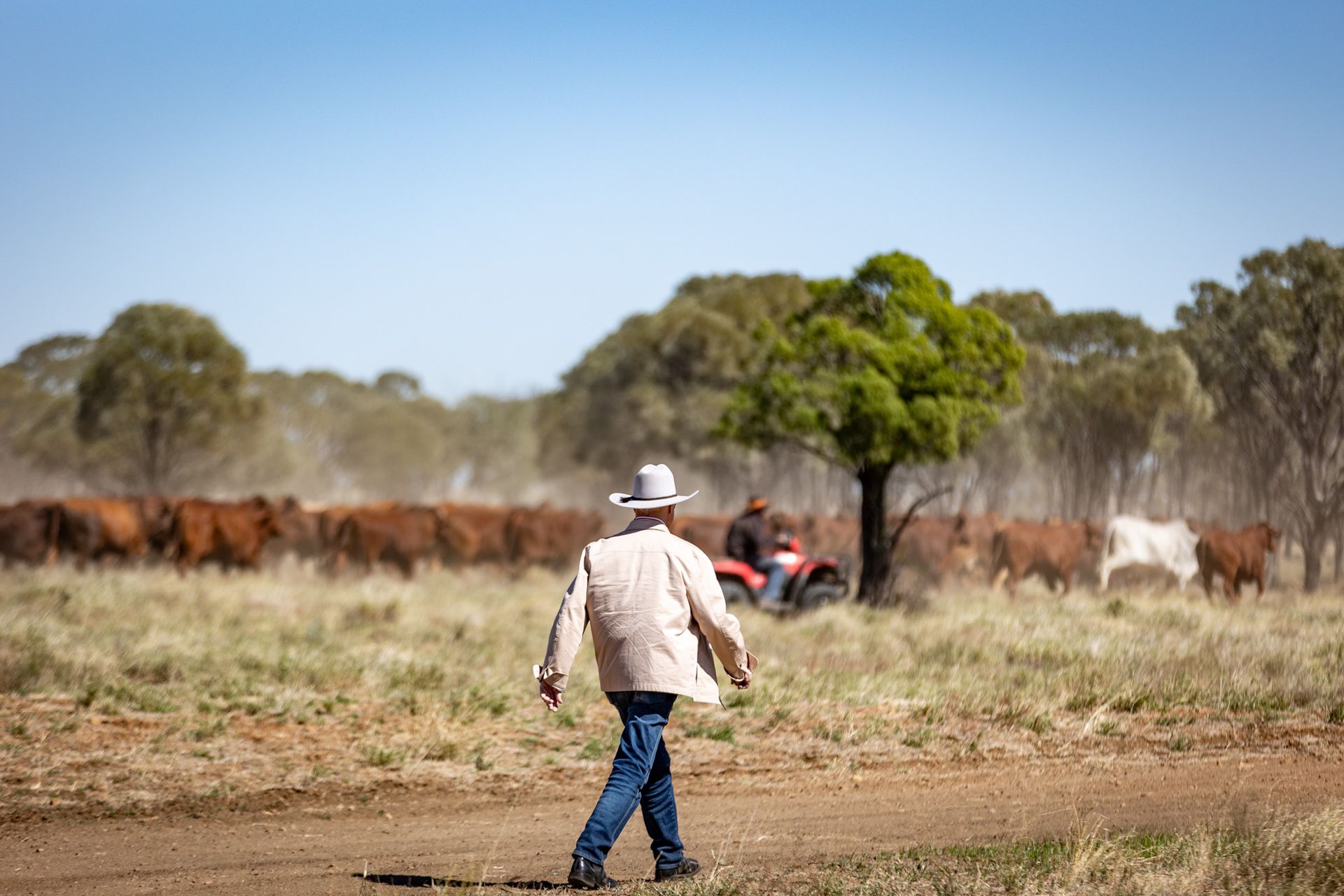By Rachelle Ambrum
•
March 25, 2025
Katter's Australian Party Federal Member for Kennedy, Bob Katter, has issued a critical response to the 2025 Federal Budget, highlighting serious concerns about its lack of proactive infrastructure planning, onerous regulatory overreach, and obvious lack of investment in agriculture and mining industries. "The 2025 Budget reveals a government more focused on reactive policies rather than proactively addressing the needs of our nation. "Our agriculture and mining sector is the backbone of our country's economic growth and prosperity. "But it is clear that the country is nothing more than a quarrying nation. Its income comes from iron ore, coal, bauxite, silicon – none are processed. We are giving our most vital resources to foreign landlords while shutting down our most lucrative industry: coal," said Mr Katter. Supermarkets $38.8 million has been allocated for a crackdown on misleading and deceptive pricing and $2.9 million to support suppliers to enforce their rights under the grocery code of conduct. "I can't see these measures providing any of the real significant reform that we need to break the duopoly and make the supermarkets more accountable to the Australian public," Mr Katter said. "Already, the Australian supermarket sector is seen as the most profitable in the world. They are making these profits from heartache, equally experienced by both consumers and suppliers. We need real and significant reform which includes forced and mandatory divestiture, a maximum 100% markup and removal of all onerous regulation imposed on suppliers. "Government is also proposing to reduce the cost of 30 essential products in remote First Australian communities. However, not one cent is being provided to allow these communities to become self-sufficient through the restoration of market gardens. "Give a man a fish and you'll feed him for a day. Teach him to fish and you'll feed him for life." Government needs to learn from the parable." Bank charges and scams The Budget proposes to remove unfair, excessive credit card surcharges, ban debit card surcharges, and provide $6.7 million for anti-scam support. "This measure may be applauded, but to really protect the Australian consumer, we need continued and guaranteed access to, and acceptance of, cash. Further, banks should be required to repay consumers that have fallen victim to scams." Critical minerals and mining Katter voiced strong opposition to the federal government's approach to critical minerals, noting its obvious omission from the key budget documents. "The "Future Made in Australia" has been hijacked by the "Wokie Greens" as a "junket" for costly renewables," he said. "The critical minerals sector is a strategic asset for this country, and yet the government is sitting on its backside while promising that we'll be swimming in wealth. We'll be drowning in foreign ownership and green tape. "The so-called 'use it or lose it' legislation is needed to address the bottlenecks in mineral extraction, but the reality is that new mines are being held to ransom by unnecessary regulations. "Significant investment is required to ensure Mount Isa remains the industrial and service hub of the NW Minerals Province. This Budget lacks that detail," Mr Katter said. "And coal should not be regarded as a dirty word but instead be seen as a cheap and reliable energy solution to provide for Australia's wealth and economic generation for many years to come. "We make no apologies for being the black warriors. Coal is King." Infrastructure: reactive, not proactive "Look at the state of our infrastructure: we are reacting to problems as they come up, rather than planning ahead," Katter said. "If we are truly serious about the future, we need to focus on proactive infrastructure." Mr Katter also highlighted the need for crucial infrastructure projects, including: Bridle Track Tunnel Fast track CopperString (transmission line connecting Townsville to Mount Isa) Inland highways from the Atherton Tablelands to the mid-west Bruce Highway – the Seymour and Gairloch Bridge HIPCo (Hughenden Irrigation Project Corporation) as a template for Cloncurry, Julia Creek, Richmond, Doomadgee and Burketown Diversion of the Upper Herbert Reuben Richardson's pump storage project Maintenance and upgrades to key roads and rail lines As stated above, funds are urgently needed for all-weather access roads in key areas to support emergency management and regional development. In response to Mr Katter's question in Question Time, the Prime Minister confirmed that $17 billion was allocated for the Bruce Highway, and another $97.3 million for the completion of the Kennedy Development Road (between the Lynd and Hughenden section of the Great Inland Highway). "When the Bruce Highway was cut off at the Ollera Creek Bridge, transport and freight came to a halt. Communities north of Townsville were cut off for nearly three weeks and an area that produced 15 percent of Australia's fruit and vegetables were unable to get to market. The supply chain was seriously impacted, and it was felt around the country," Mr Katter said. "What is not clear in the Budget is where this $17 billion will be allocated. Since November 2021, $40 million has been allocated for the Gairloch and Seymour areas, yet no construction has started. "Construction of the Bridle Track Tunnel, which will provide emergency evacuation for Cairns and the surrounds must be a priority and connecting the Great Inland Highway (Lynd to Charters Towers section), and key roads like the Bruce Highway at Seymour and Gairloch must also be fast-tracked to ensure our industries remain uninterrupted. "Every time we see a heavy rain depression, Townsville and Ingham are subject to flooding. It is time we introduce flood diversion measures for the Upper Herbert and Ross Rivers to reduce downstream impacts. "These are just a few of the projects that could provide long-term economic stability for the country. Instead, we're stuck with a Federal Budget that is playing catchup rather than laying the foundations for a prosperous future," Mr Katter added. Transport "$130 million in loans for Rex Airlines is the last thing we need in rural Australia after decades of overpricing and unreliability. This loan was required because Rex (like others before them) arguably abandoned rural Australia for more profitable routes. "What's needed is a government owned, rural focused airline that provides connectivity between very remote locations and their administrative centres. These tickets should be subsidised by government to a price equivalent to the public transport subsidies in Brisbane." Fuel and energy "$150 wiped from a family's power bill for the second half of this year" is a shortsighted vote grab," Mr Katter said. "And a further $8 billion has been allocated for renewables and low emission projects. "However, these measures do not acknowledge that the most cost-effective and reliable power source is still from coal-fired power generation. "We need real measures to reduce the cost of electricity, and investment and upgrade rather than the shutdown of our coal fired power stations. To ensure that Australians can have continued access to cheap, reliable power, we cannot afford the extravagance of renewables," Mr Katter said. "For fuel, we need a serious plan for Australia to become self-sufficient in fuel. We have all the natural resources to rival the most self-sufficient fuel resources in the world – 10 hectares of cane produces 10,000 litres of fuel that we could use in our cars (ethanol). Yet we are almost solely dependent on fuel imports. Even our fuel reserves are stored in America." Health & rural communities GPs have seen an $8.5 billion injection to ensure visits across the country continue to be bulk billed. In response to health announcements, Mr Katter pointed to the government's failure to adequately address the needs of rural communities. "The government has failed to significantly address the shortage of GPs in rural and regional areas, and their approach to pharmacy regulations will only make it harder for rural Australians to access the medications and services they need. "A lot of these measures, whilst effective in metropolitan areas, will do little to address the current health crisis due to the lack of healthcare workers in regional Australia. "We also need a national cap on pharmacy ownership and, where appropriate, the roll out of accreditation for issuing of repeat scripts." Additionally, Mr Katter stressed the importance of supporting First Australian communities with better nutritional standards, focusing on developing local market gardens to provide fresh produce. Housing Katter also took issue with the government's approach to housing, calling for the removal of land restrictions in non-metropolitan areas to encourage growth and alleviate pressure on urban centres. "Whilst this measure has been noted in repeated budgets, all housing development is still hamstrung by onerous regulatory oversight, making housing unaffordable and out of reach for everyday Australian families. "It is noted that $120 million has been provided for the national productivity fund to remove red tape relating to modern construction, but this does not go far enough to address excessive regulations imposed by the three layers of government that are prohibiting the release of land and substantially increasing the cost of building. "The proposal to ban foreign buyers from buying existing dwellings for two years, and to target land banking by foreigners is applauded, however, the question should be asked, as to whether or not this will increase the market competition for new builds." Family tax reforms & corporate accountability On tax, Katter emphasised the need for income splitting to support families and called for an abolition of current immigration policy. Income splitting would allow families with parents of differing wages to split their high wage for tax purposes so that less overall tax is paid by families. "We must abolish immigration and start again. "Government should be using the monies spent on supporting immigrants to instead support Australian families by providing $20,000 per child per year to their primary carer/s," he stated. Katter also proposed the abolition of ASIC, arguing that corporate oversight should be handed over to the Australian Federal Police (AFP) with stronger penalties for corporate wrongdoers and proven law enforcement capabilities. "Corporate rogues must be stopped and prohibited from reforming," said Mr Katter. Emergency management In terms of emergency management, Katter called for a portion of the $6 billion in annual GST revenue from insurance to be specifically quarantined for infrastructure projects that reduce flood risks and allow for relief and recovery. "Raising, sealing, and widening roads, as well as building new roads to connect Cairns to the Tablelands, as well as flood-proofing the Bruce Highway are crucial investments in disaster mitigation. "The Government also needs to address the shortfalls with the Cyclone Reinsurance Pool that has left premiums in northern Australia four times the amount the southern cities pay. This is grossly unfair particularly as the Pool may now be completely absorbed by those impacted by the recent cyclone in southern Queensland and northern New South Wales." Telecommunications Katter also acknowledged the government's commitment to the Universal Outdoor Mobile Obligation (UOMO) for mobile phones in regional and remote Australia but warned that while it's a step in the right direction, the policy only covers emergency calls (000) and basic voice calls, not data or streaming. "This is fine for emergencies, but it falls short for businesses, schools, and communities that rely on robust connectivity including data for everyday communication and economic activity," he said. Fun and freedom The beer tax has been frozen for two years from August 2025. "This will assist many of the fabulous brewers and publicans that we have in the north and restore our sovereign rights to enjoy a beer at the pub without sinking all your hard earned," Mr Katter said. Summary In response to the 2025 Budget, Mr Katter said he was once again left with little faith the country would return to its nation-building potential in any foreseeable future. Instead, the Budget is a mix of band-aid and tokenistic solutions that will do little to generate the real wealth that our nation needs. "It spends billions on tokenistic, "Wokie Green" causes - squandering the nation's wealth and stopping job creation. "It is clearly an anti-development anti-jobs agenda, with no mines and no agricultural consideration, whatsoever. "This budget is full of metro lollipops and its only outcome is decay." ENDS












